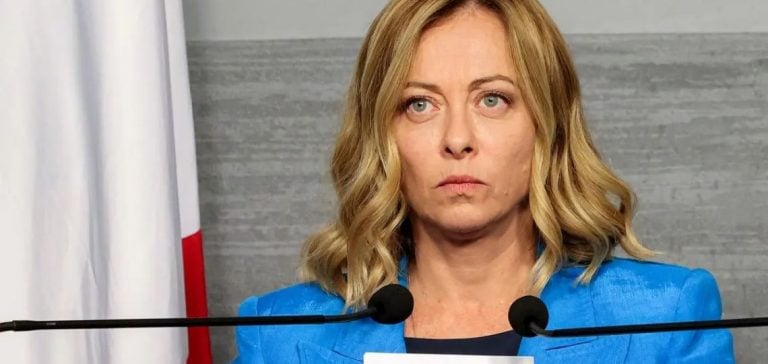The Italian government, under the leadership of Giorgia Meloni, is considering reintegrating nuclear energy into its energy mix. Adolfo Urso, Minister of Enterprises, announced the intention to define a legislative framework by the end of the year to allow the installation of third and fourth-generation nuclear reactors on Italian territory.
This initiative marks a turning point after nearly four decades since the November 1987 referendum, which led to the abandonment of nuclear energy in Italy following the Chernobyl disaster. Today, the current government views nuclear energy as an essential component to achieve net-zero emissions by 2050.
Legislative Framework and Advanced Technologies
Adolfo Urso specified that the legislative framework will aim to allow the construction of advanced nuclear reactors, utilizing Italian technology and science. “We do not want to import nuclear reactors from other countries. We want to build them in Italy to export them later,” he stated during a business conference in Milan.
The goal is to create an industrial entity capable of developing and manufacturing third and fourth-generation reactors. These reactors are designed to be safer and more efficient, thus meeting current environmental and technological standards.
Environmental and Economic Objectives
The Meloni government believes that the return to nuclear energy is indispensable to achieve carbon neutrality. By integrating nuclear energy with renewable energies, Italy can diversify its energy sources and reduce its dependence on fossil fuels, particularly Russian natural gas.
Furthermore, Adolfo Urso emphasized that the cost of energy in Italy is currently too high compared to that of its European competitors. Nuclear energy could help lower these costs by providing a stable and less expensive energy source in the long term.
European Context and Decarbonization Strategies
At the European level, nuclear energy now enjoys increased recognition as a strategic technology for decarbonization. In February, the European Parliament and EU member states agreed to include the entire nuclear sector in the list of “strategic technologies.” This recognition facilitates investments and the development of nuclear projects within the EU.
Energy Independence and Security
The rupture of relations with Russia following the invasion of Ukraine in February 2022 highlighted the need for Italy to diversify its energy sources. The use of nuclear energy would reduce this dependence, thereby strengthening the country’s energy security.
Historical Legacy and Public Reactions
Italy has a notable history in the nuclear field, notably thanks to the Italo-American physicist Enrico Fermi, Nobel Prize in Physics in 1938, who created the first nuclear reactor. Adolfo Urso recalled that “nuclear energy, which was invented in Italy, must become the pride of Made in Italy.”
However, this initiative faces resistance. In June 2011, three months after the Fukushima disaster, a referendum showed an overwhelming opposition of 94% of Italians to the return of nuclear energy. The current government will thus need to navigate between political ambitions and public concerns.
Perspectives and Challenges
Implementing this ambitious project will require substantial investments, close collaboration with European institutions, and effective communication with the public to overcome historical hesitations. The success of this initiative could position Italy as a leader in advanced nuclear energy, while significantly contributing to the fight against climate change.






















